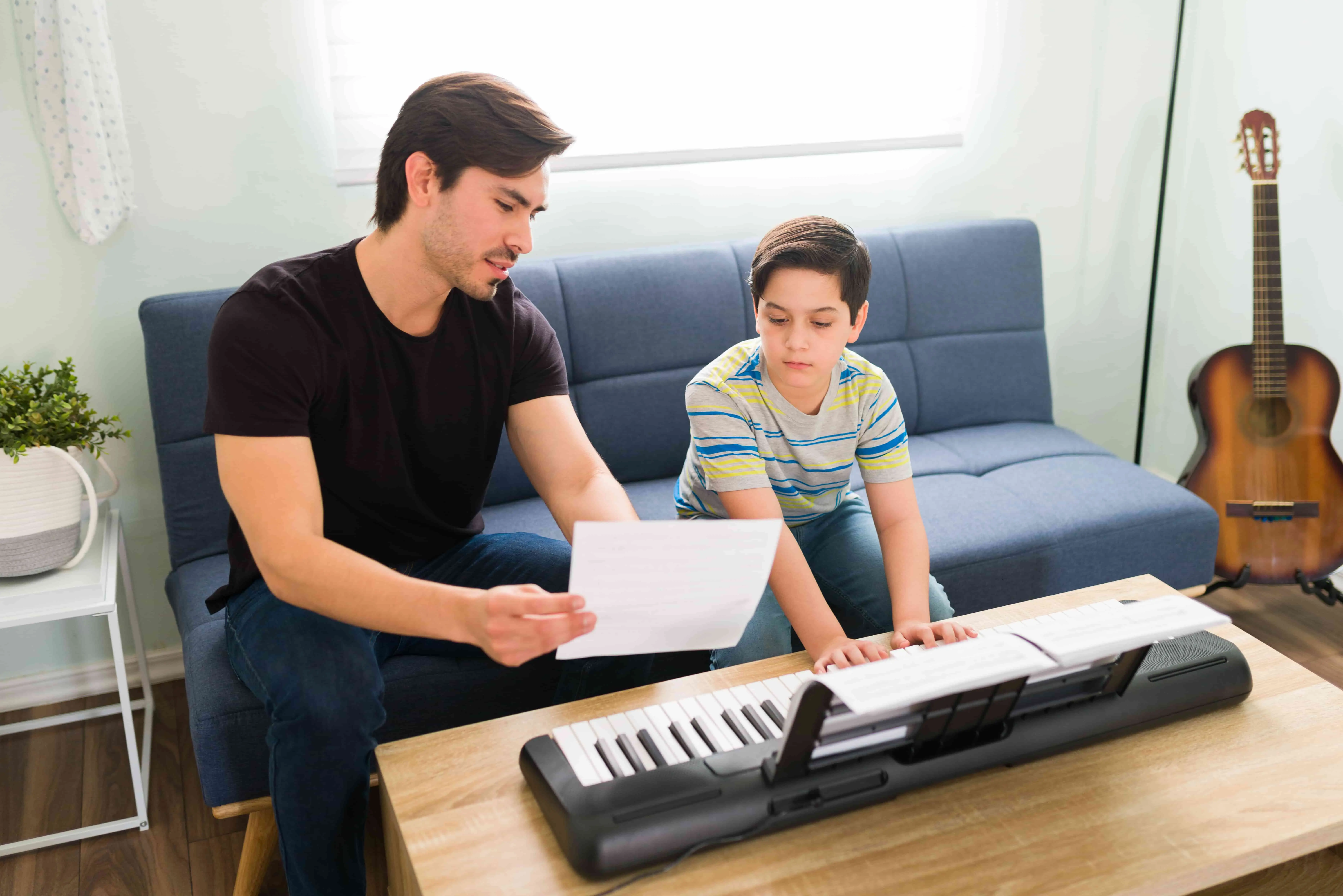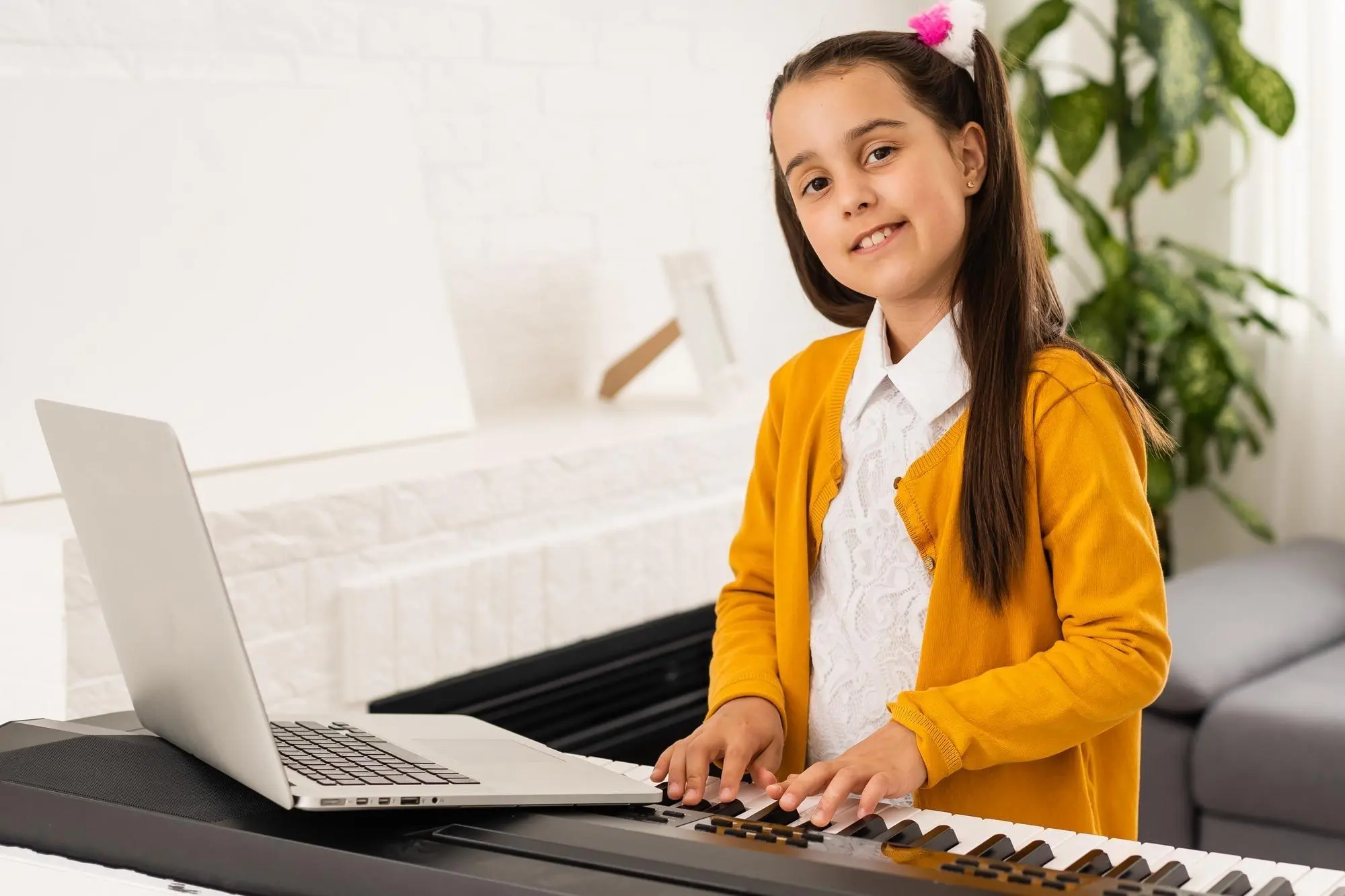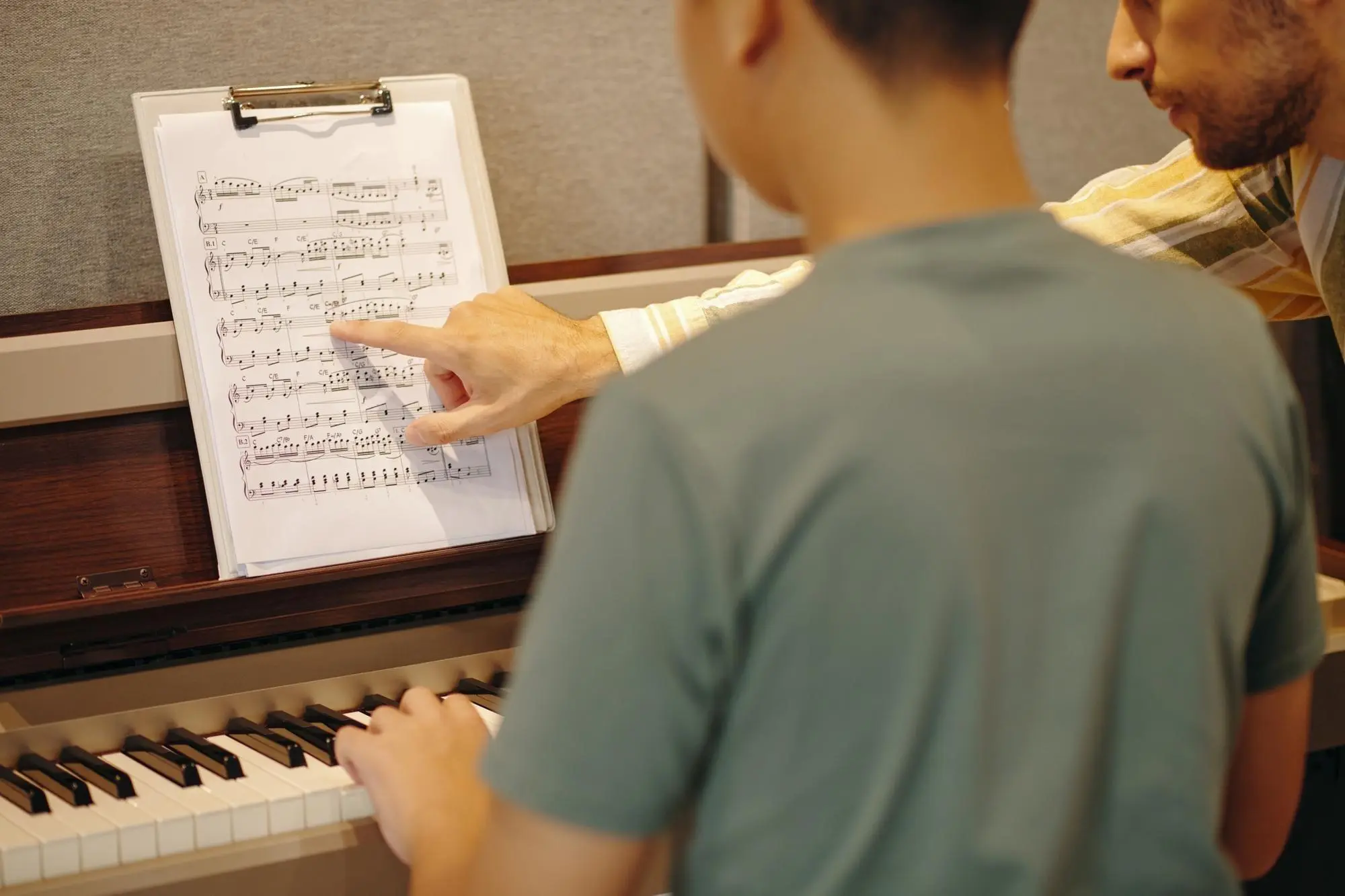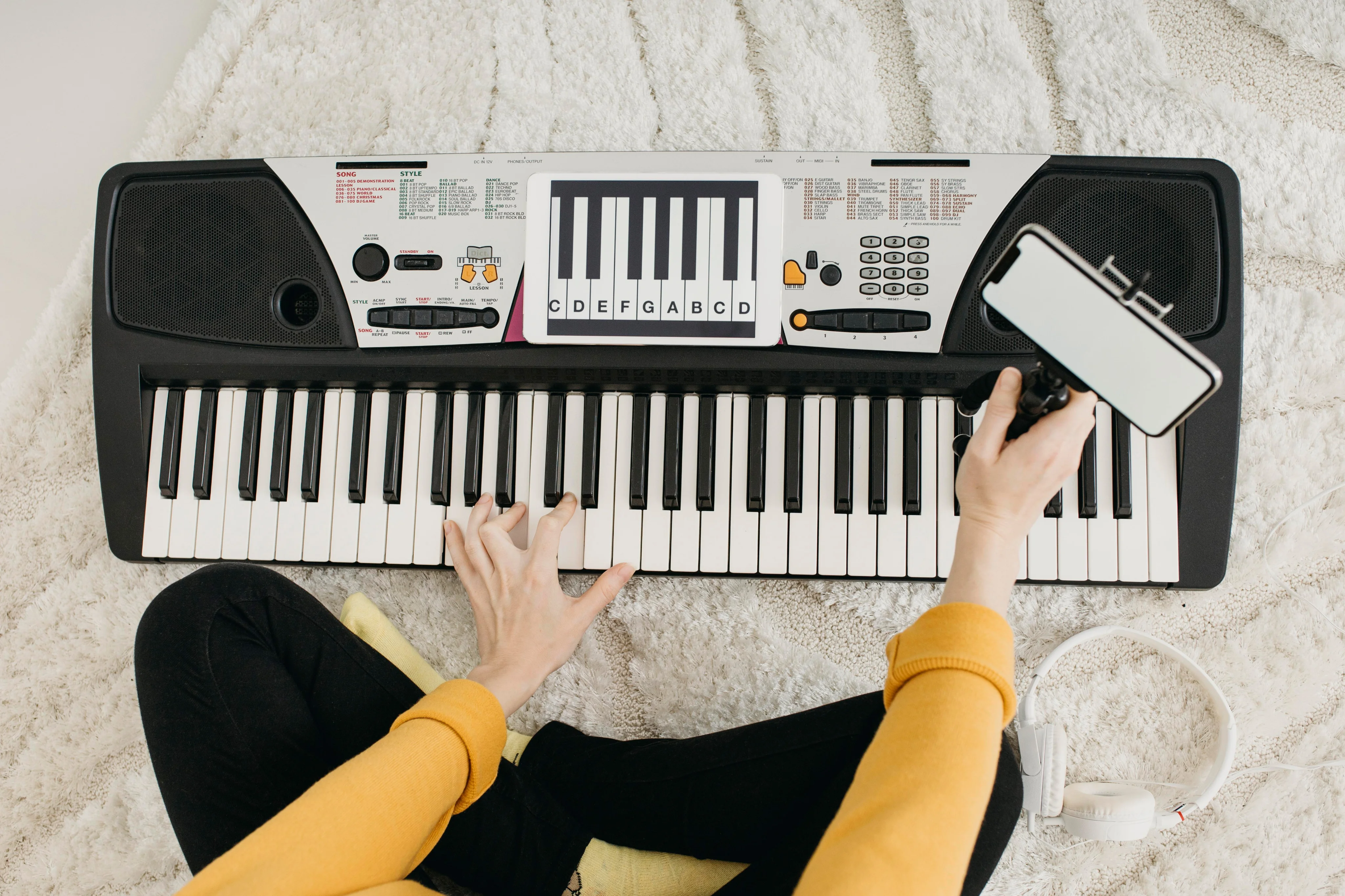Does your child light up to the sound of music? Have you seen them humm to the tunes of nature and bang on pots like a natural drummer? If yes, then it might be time for you to help them explore their musical potential. Our history of music is full of rich examples such as Mozart, Michael Jackson, A R Rahman, Lata Mangeshkar, and Sonu Nigam–all of whom have been creating melodies since they were five years old.
But how will you even know that your child is ready not to step on their musical journey? And if they are ready, then how will you provide them with music instruments for kids along with everything they need to make their mark in the world of music? In this blog, we’ll talk about how and when to introduce an instrument to your child so that it can be a fun adventure for both of you!
What’s the Right Age to Start Playing an Instrument?
Many times, mothers have started playing music for their babies even before they were born. But usually, kids should be at least 4-6 years old to start learning to play an instrument. At this age, they have developed enough hand-eye coordination and can pay attention for long enough to understand basic music concepts and handle small instruments like a ukulele, keyboard, or violin. By this age, most kids will also be old enough to sit upright and be attentive for half an hour or more thus leading to more productive sessions.
However, music is not restricted to just instruments, so you can motivate kids to clap, hum and sing along to tunes even before they start speaking. This early imbibition of rhythms and music can help lay the foundation for future learning.
Once the groundwork has been set, now is the time to observe your child’s readiness and the genres of music to which they are most responsive. If you pay careful attention to the development of your child’s musical skills, you will intuitively understand when they are ready for external support and guidance. Once they start showing interest, become more willing to explore sounds, and can follow basic instructions, they might be ready to start their musical journey.
How to Choose The Right Instrument
More than 1,500 different types of musical instruments exist worldwide, and a majority of those we might have never even heard of. This is why a child usually only thinks about three or four instruments like the piano, violin, or guitar which make it hard for parents who worry that their child is going to choose the wrong instrument. To make it easier, when you are choosing a music instrument for kids, think about their size, natural talent, and interests.
For example, a child with small hands might have trouble playing the upright bass, and a full-sized guitar might be difficult for a five-year-old. This is why the easiest instrument to learn for your child depends on their interests and capacities as well. The most versatile and best instrument to learn is still the piano, as you just won’t find anything else that’s able to cover such a broad range of pop, jazz, classical, and rock music as easily. For this reason alone, it is often known as a foundational instrument, and online piano classes at an early age can be very valuable later on. Guitar and violin remain very popular in schools due to the expressive nature of stringed instruments, plus they’re easier to carry home than a piano.
No matter what a child chooses, the most important thing is the support they get and the effort they put in.
How to Introduce an Instrument to Kids?
Now that you have carefully considered the right age and the right instruments, it is time to introduce your kids to them. It can be a very rewarding experience, but it takes a lot of time and patience to see the fruits of your efforts. Here is a step-by-step guide to doing it effectively.
- Before introducing an instrument, allow your child to listen to various types of music so that they can develop an ear for music. Play music at home, attend concerts, and watch musical performances together as a family. This builds curiosity and gives you an insight into what your child enjoys.
- When introducing any instrument, let your kid interact with it in a fun, non-structured way. Toy instruments or percussion drums and maracas can be a great way to get them engaged. This helps them explore without any pressure and lets them naturally gravitate towards an instrument they like.
- If your child is big enough to make decisions, then you can also let them choose the instrument they want to play. This might be tricky for younger kids, but you must keep their emotional range in mind and use your discretion for better results.
- Once your child shows clear interest, enrolling them in beginner music lessons is the next step. For example, if your child shows interest in percussion instruments, then finding and enrolling them in online tabla classes or online drum classes might be helpful for a start. If they are more into strings, then online guitar classes are going to be more helpful.
- Children tend to lose interest quickly, which is why you need to let them progress at their own pace. You just need to make sure that the instructor is familiar with teaching young children and knows how to keep young children engaged. Also, celebrate any milestone and put no pressure to excel too quickly.
Conclusion
By introducing your child at the right time, they are sure to love it for the rest of their lives. But as a parent, it is largely up to you to make sure they have a fun experience. The hard work and dedication part can come later. If their early music experiences are happy, they’ll not only grow as musicians but as confident and well-rounded people.
Lastly, introducing the instrument is just the first step towards a huge journey because finding the right environment to nurture their talents is equally important. We at Artium Academy offer the ideal solution with our expert instructors and flexible online learning options. To help your child become good at music, our trained team has devised a plan that is sure to inspire all young learners. Our classes focus on hands-on experiences under the careful guidance of established industry experts so that your kid can hone their music skills effectively.
















